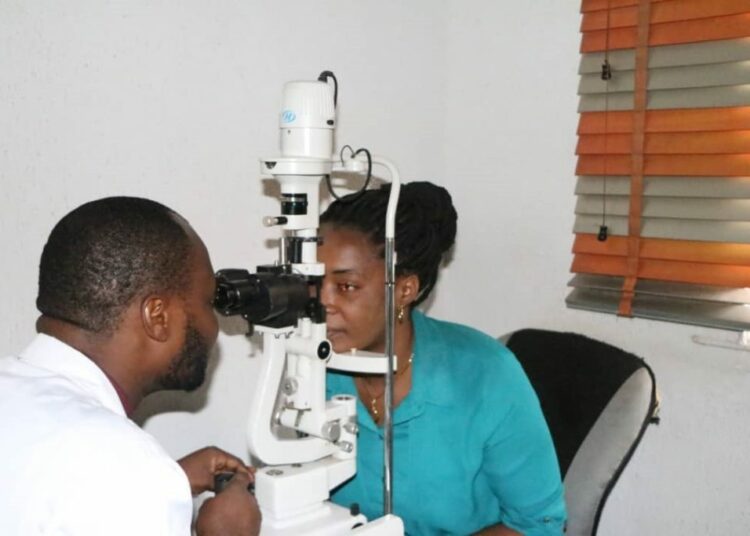The federal government has said that 1.13m Nigerians above 40 years are blind, adding that glaucoma was the second most common cause of blindness, accounting for 16.7 per cent of the burden of blindness.
The national coordinator of the National Eye Health Programme, Federal Ministry of Health and Social Welfare, Okolo Oteri, stated this at the launch of the glaucoma guideline and toolkit training for health professionals in Abuja.
She described glaucoma as a leading cause of irreversible vision loss globally and specifically in Nigeria.
Citing data from the Nigeria Blindness and Vision Impairment Survey, Oteri said, ” 0.78 percent of Nigerians of all ages are blind. Blindness increased significantly with illiteracy and age, with 1.13m (4.2%) Nigerians over 40 years blind.
“Glaucoma was the second most common cause of blindness, with a prevalence of 5 per cent and accounting for 16.7 per cent of the burden of blindness. Only 5.6 percent knew they had the disease in the Nigeria survey, and 20 percent were already blind.
“Glaucoma was also responsible for 3.9 percent of severe vision impairment (VI), two percent of moderate VI and 1 percent of mild VI. Open-angle glaucoma is the commonest (86%) form of glaucoma in Nigerians, with angle closure accounting for 14 percent.”
She underscored the urgent need for standardised care protocols and enhanced healthcare delivery.
The coordinator outlined prevalent challenges, including socioeconomic disparities, inadequate access to care, and cultural barriers affecting awareness and treatment adherence.
She said these factors underscored the importance of integrated, patient-focused care models to improve outcomes and reduce the burden of glaucoma-related disabilities across Nigeria.
“This training initiative is poised to empower professionals in delivering equitable, integrated, and efficient glaucoma services, ensuring sustained improvements in patient care nationwide,” glaucoma as a leading cause of irreversible vision loss globally and specifically in Nigeria,” said Oteri.
On her part, a consultant ophthalmologist at the University of Abuja Teaching Hospital who is also a contributor to the document, Fatima Kyari, said, “We have the clinical section where it helps how we treat glaucoma clinically, and then we also have the programmatic section where we develop glaucoma care teams.
The guideline was officially launched in 2023 by the First Lady, Oluremi Tinubu, alongside two other documents to enhance eye health in Nigeria.





